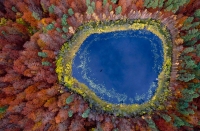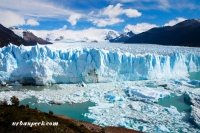Michael Shellenberger, Founder-President of Environmental Progress: Global demand for electricity is set to rise 70% over the next 25 years. Technological advances mean that new nuclear reactor components can increasingly be mass-manufactured in factories and shipped around the world for reassembly on site. What’s at stake is a market worth $500 to $740 billion over the next decade and hundreds of thousands of high-skill and high-wage jobs. Such an effort will require new regulations. It makes no sense to regulate jet planes the same way we do propeller planes, yet that is precisely how the federal government treats new nuclear reactor types. This new Atoms for Peace effort could inspire and unite the country and the world around something almost everyone wants: cheap, clean energy.
Ted Nordhaus & Michael Shellenberger - Nuclear energy today is broadly recognized by scientists, scholars, and analysts as an environmentally positive technology with risks, such as they are, overwhelmingly outweighed by its environmental benefits. Such is the consensus on this question that mainstream environmental leaders no longer attempt to contest it.
An Ecomodernist Manifesto (www.ecomodernism.org)
17.Apr.2015To say that the Earth is a human planet becomes truer every day. Humans are made from the Earth, and the Earth is remade by human hands. Many earth scientists express this by stating that the Earth has entered a new geological epoch: the Anthropocene, the Age of Humans.
As scholars, scientists, campaigners, and citizens, we write with the conviction that knowledge and technology, applied with wisdom, might allow for a good, or even great, Anthropocene. A good Anthropocene demands that humans use their growing social, economic, and technological powers to make life better for people, stabilize the climate, and protect the natural world.
Rise of the Nuclear Greens (Robert Bryce)
16.Apr.2015Robert Bryce is a senior fellow at the Center for Energy Policy and the Environment at the Manhattan Institute. In theory, the March 11, 2011, disaster at the Fukushima Daiichi nuclear plant should have bolstered environmentalists’ opposition to new nuclear-energy projects. But in the wake of the worst nuclear accident since Chernobyl, some of the world’s leading Greens have done just the opposite: they have come out in favor of nuclear power.
Subscribe to Newsletter
- Latest
- Popular







